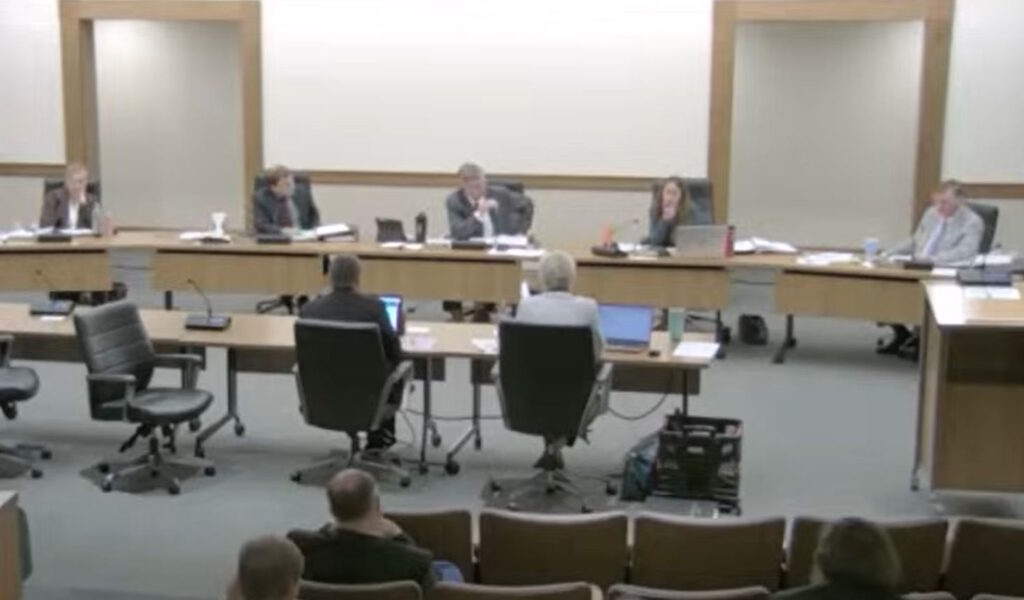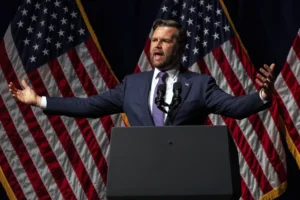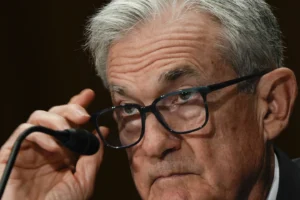Wyoming’s Elected Officials Take Stand Against ‘Woke’ Investing
New policy prohibits state’s asset managers from pursuing ESG
- Published In: Politics
- Last Updated: Aug 04, 2023

State Treasurer Curt Meier, pictured during a July parade in Cody, said the state’s new anti-ESG investment policy takes a firm stance while remaining a measured approach. (Wyoming Truth photo by CJ Baker)
By CJ Baker
Special to the Wyoming Truth
Wyoming’s top elected officials are pushing back against “woke investing,” saying they may cut ties with investment firms that try using the state’s dollars to pursue ideological agendas instead of the best returns.
At a Thursday meeting, the State Loan and Investment Board unanimously adopted a new investment policy that condemns the use of environmental, social and governance (ESG) investment criteria. State Treasurer Curt Meier described it as taking a “firm stand,” but he indicated it won’t lead to any big, immediate changes to the state’s $26 billion investment portfolio.
“We’re raising our voice, but we’re not out the window saying, ‘I’m mad as hell, and I won’t take it anymore,’” Meier said. “But we’re close.”
The board’s new policy says ideological investment criteria “have crippled, corrupted, disadvantaged, subverted, damaged, or otherwise harmed the children, citizens, industry, and the financial well-being of Wyoming and America.”

ESG can take on a host of forms, from promoting diversity to divesting from firearm manufacturers. The five statewide officials on the board, however, were most concerned about financial institutions and firms cutting ties with the fossil fuels industry in an effort to reduce greenhouse gas emissions.
For example, Meier argued ESG practices severely damaged the coal industry — costing the state hundreds of millions of dollars and driving up energy costs — while accomplishing nothing. As coal plants continue to be retired in the U.S. to cut emissions, China and other countries keep building more, he noted.
“America is just definitely on the wrong track,” Meier said.
Under the new policy, those managing the state’s roughly $26 billion worth of investments are reminded that they must seek “the highest total return on a risk adjusted basis.” If the treasurer’s office learns that an investment partner is “acting in a non-pecuniary manner,” and if they’re hurting the state’s returns or general revenue, the office will reach out and take some form of action. That could be as low-key as asking a firm to modify its policies or as severe as dumping them for a competitor.
“It isn’t shoot first and ask questions later. It’s questions first,” Meier said, calling the policy a good, measured approach. He described it as more middle-of-the-road than those adopted by states like Kansas, Texas, Florida and Kentucky.
A need for more action?
During last winter’s General Session, the Legislature considered legislation that demanded financial managers pay back three times what they’d earned from the state if they pursued ESG goals. Meier opposed the bills, saying no one would want to work for the state under those conditions. He suggested that Thursday’s statement from the board could head off “even more draconian action” from state lawmakers.
However, Secretary of State Chuck Gray — a particularly outspoken critic of ESG — said he hopes the Legislature also addresses the “woke clown show.”

“We’ve all got to work together to take on this outrageous attempt to go against the values that have made our country and our state what it is,” Gray said of ESG.
The day before the meeting, his office proposed a series of new rules that would require investment advisers, broker-dealers, and securities agents in the state to tell their customers and clients “whether they are incorporating a social objective” — i.e. ESG — in their investments. Gray called it “the first concrete action taking on ESG in Wyoming.”
On Thursday, he proposed a series of amendments aimed at toughening up the investment policy, and all except one (which would have added specific disapproval of “ESG ratings”) were adopted by the board. However, Gray still called the final product “pretty weak sauce.”
“I don’t really think it does too much,” he said.
Gov. Mark Gordon, a former state treasurer, differed.
“If people tend to look at this as a weak statement that they can ignore, think again,” Gordon said, adding later that, “This is not a, ‘Hooray, we can make a press announcement.’ This is a significant statement that has consequences.”
Avoiding unintended consequences
Gordon had resisted some of the language, arguing the line about ESG having crippling effects was better off in a press release than in a policy for asset managers. He also worried about limiting the treasurer’s ability to work with otherwise desirable companies that have ESG policies, such as Peabody Energy or Exxon.
State Superintendent of Public Instruction Megan Degenfelder and State Auditor Kristi Racines shared similar concerns about unintended consequences.

“There’s a lot of companies, or at least some, that are gonna make us a bunch of money, and we own [their shares], and they also have good ESG scores, regardless of how wacky we think that is,” Racines said. “When we start saying, ‘OK, Curt [Meier], no Apple, no Microsoft, no …,’ we have to be very conscious that the words we put on the paper will have real impacts to that.”
Much of Thursday’s hour-and-a-half-long discussion revolved around how to define ESG. There’s nothing wrong with some of the goals that might fall under that umbrella, board members noted, such as supporting anti-bribery governance policies.
“We all ‘know it when we see it,’” Racines said of what the board is targeting. “But it’s actually hard to write it down in a way that we can all agree on.”
For instance, Gordon suggested referring to “woke” investing criteria, but at Degenfelder’s urging, the board settled on “ideological.” Degenfelder said the policy could be vulnerable to legal challenges if the wording is vague or subjective, saying that’s been an issue in battles over education.
“Critical race theory, you name it, if you don’t define it, then none of it matters,” Degenfelder said. Otherwise, she said, “they’ll find a way around it.”
The new policy puts an onus on the treasurer’s office to monitor its investment partners, Gordon noted, and he wondered if it will lead to a need for more staff. Meier — who’s separately hiring proxy vote managers to push back against ESG proposals at shareholder meetings — agreed it’s a big task. But in asking investment partners to stay focused on pecuniary interests and fiduciary duties, “essentially we’re doing the same stuff that we’ve always done,” he said.
And while the policy gives the treasurer the authority to replace a firm if they pursue damaging ESG criteria, Meier noted that some, like J.P. Morgan, are ultimately irreplaceable.
“You can do what you can do,” he said, “but there are times there’s no alternatives.”













